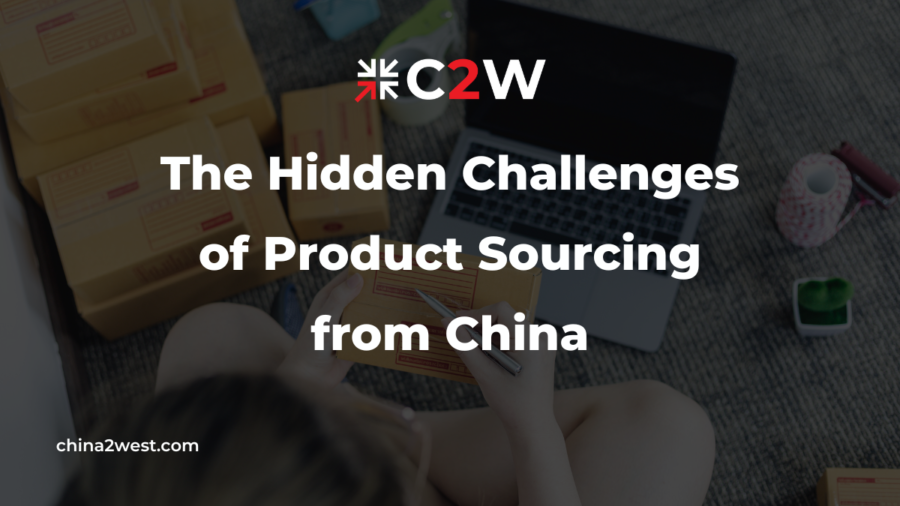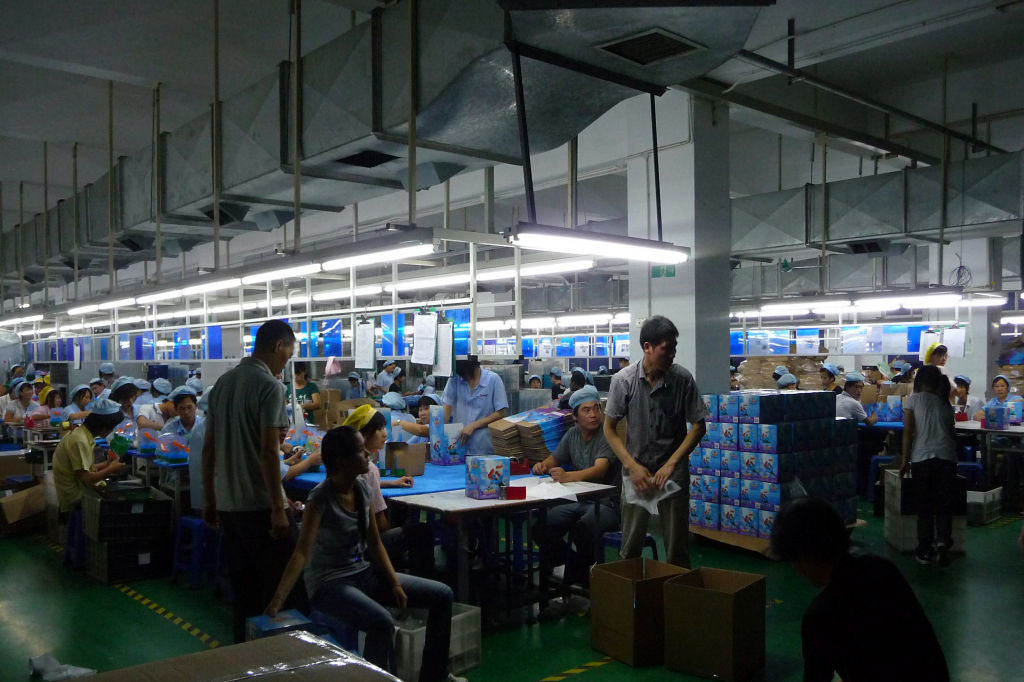In the intricate tapestry of the global economy, the magnetic appeal of sourcing products from China stands out prominently. This nation, with its colossal manufacturing infrastructure, has evolved into a linchpin for international trade, offering a unique blend of scale, speed, and cost efficiency that is hard to replicate elsewhere. China’s rise as a manufacturing powerhouse is underpinned by several key factors that make it an irresistible destination for businesses seeking to optimize their supply chains.
However, the journey of product sourcing from China is not without its hurdles. While the advantages are widely recognized, the often-overlooked challenges can pose significant obstacles to unwary businesses. This blog post aims to shed light on the hidden challenges of product sourcing from China, offering insights and guidance for navigating this complex landscape successfully.
Complex Landscape of Chinese Suppliers
Navigating the complex landscape of Chinese suppliers presents a formidable challenge for businesses engaging in product sourcing from China. With an overwhelming number of factories and suppliers scattered across the country, each offering different levels of expertise, quality, and reliability, finding the right partner for your business needs is akin to finding a needle in a haystack. This task is further complicated by the language barrier and cultural differences that can impact communication and understanding. The intricate web of business practices unique to China adds another layer of difficulty, making it essential for companies to approach supplier selection with a strategic mindset.
To overcome these obstacles, businesses must undertake comprehensive research and vetting processes. This includes delving deep into the capabilities and track records of potential suppliers, requiring a meticulous approach that goes beyond surface-level evaluations. The importance of clear and effective communication cannot be overstressed, as it forms the foundation of a strong and reliable business relationship.
Quality Control and Consistency Issues
When it comes to sourcing products from China, maintaining a high level of quality control and ensuring consistency across batches is a critical yet challenging endeavor. Variations in quality not only exist among different suppliers but can also be observed within the production output of a single factory. To mitigate these issues, companies must adopt robust quality assurance strategies that encompass various stages of the production process. This typically involves conducting thorough on-site inspections to monitor manufacturing processes first-hand, engaging third-party quality audits to provide an unbiased review of the product quality, and developing detailed quality specifications and tolerance levels that suppliers must adhere to.
Establishing these rigorous quality control measures is not merely about maintaining product standards; it’s about safeguarding your brand’s reputation and ensuring customer satisfaction remains high. In the absence of such precautions, there is a tangible risk that the final products will fall short of expectations, leading to potential harm to your business’s reputation and possibly affecting your relationship with end consumers.
Intellectual Property (IP) Protection Concerns
Intellectual property rights are a critical aspect to consider for businesses engaged in product sourcing from China. The landscape of IP protection in China presents unique challenges, notably the heightened risk of infringement or misappropriation of trademarks, patents, and copyrights. To effectively navigate these waters, companies must adopt a comprehensive and proactive strategy that emphasizes the importance of IP due diligence before engaging with suppliers. This involves a meticulous evaluation of the potential supplier’s history with IP issues and ensuring that any partnership is predicated on mutual respect for intellectual assets.
One practical step is to secure IP rights within China itself, which may involve registering patents and trademarks with the Chinese authorities. This local registration is pivotal, as it provides a legal basis to protect and enforce your IP rights within the country. Additionally, crafting contracts that explicitly address IP concerns, including clauses that outline the handling and protection of intellectual property, is essential. These agreements should clearly define the consequences of IP violations, offering a protective legal framework for foreign businesses.
Navigating Regulatory Compliance and Customs
For companies sourcing products from China, understanding and adhering to the nation’s complex regulatory landscape and customs procedures is crucial. This entails a comprehensive grasp of the diverse laws, standards, and certifications that apply to the various categories of products being sourced. Failure to comply with these regulations can lead to substantial fines, legal issues, and a tarnished brand reputation, emphasizing the need for meticulous attention to regulatory details.
Moreover, the process of exporting goods from China involves intricate customs protocols. Businesses must be well-versed in the proper documentation, labeling, and packaging requirements to avoid delays at the border, which can disrupt supply chains and inflate costs unexpectedly. The challenges extend to staying updated with frequent changes in customs regulations and tariffs that directly impact the cost-effectiveness and timeliness of shipping products.
The Impact of Tariffs and Trade Policies
Navigating the shifting sands of international tariffs and trade policies is a critical aspect of product sourcing from China that businesses cannot afford to overlook. The dynamic nature of geopolitical relationships, particularly between major economies like China and the United States, has led to the implementation of tariffs that can profoundly alter the cost structure and competitiveness of imported goods. These financial levies are imposed on imported products and can drastically increase the price, affecting the overall affordability and marketability of items sourced from China. To stay ahead, companies must be agile, keeping abreast of any policy changes that could impact their sourcing strategies. This may involve regularly consulting trade experts or employing strategic planning to anticipate changes in the trade environment.
Flexibility in sourcing strategies becomes paramount in mitigating the effects of unpredictable trade policies. One approach is diversifying the supply chain to include suppliers from countries not affected by tariffs, thereby reducing dependency on any single source and potentially circumventing costly tariffs. Additionally, exploring the feasibility of reclassifying products to fall under different tariff codes with lower rates is another tactic that can be employed, although it requires careful legal and regulatory consideration to ensure compliance.
Get Peace of Mind with Professional Product Sourcing Services
Sourcing products from China can be a great way to expand your business, offering you the potential to find quality products at an affordable price. However, it’s important to understand the various risks and challenges associated with the process. To ensure that your sourcing strategy is successful, make sure to follow the above practices, so you can increase your chances of success.
Do you need a second hand to take care of your sourcing project? Are you interested in working with a dependable and knowledgeable sourcing agent in China? China 2 West’s sourcing team is happy to help you.
With our expertise in product sourcing and extensive network of suppliers, we can assist you in finding the right products at competitive prices and deliver to your warehouse on time. We can also help you navigate the complex process of importing products from China and ensure that your products meet your quality standards. Contact us today to learn more about our sourcing services and how we can help you achieve your business goals.


